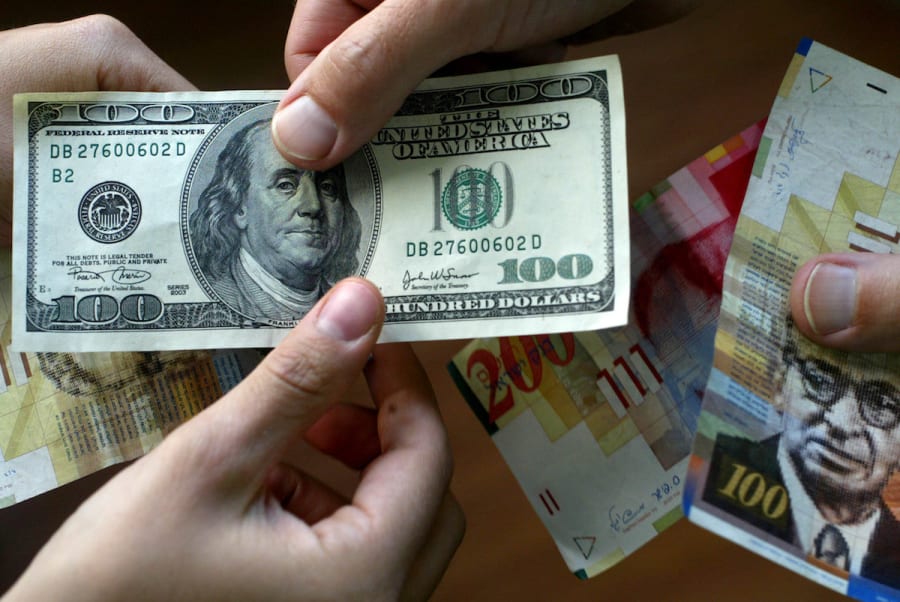Shekel hits three-year lows against dollar amidst weakening trend

Despite yesterday's positive report from Fitch Ratings and its affirmation of Israel's credit rating, the shekel weakened against key foreign currencies in the last 24 hours, painting a picture of a fluctuating financial landscape.
In today's trading session, the dollar's value surged by 1.4% against the shekel, reaching NIS 3.77. Meanwhile, the euro strengthened by 1.1%, resulting in a value of NIS 4.12. The pound also followed suit, experiencing a 0.7% increase and reaching NIS 4.76. These fluctuations mark an unsettling pattern for the shekel, which has faced consistent depreciation since the start of the year.
Remarkably, the dollar's strength against the shekel has grown by 6% since the beginning of the year. This contrast is further emphasized by the ICE dollar index, which gauges the dollar's performance against the currencies of the United States' primary trading partners. Surprisingly, this index fell by 0.5%, defying the dollar's global weakening trend.
Joseph Freiman, CEO of Prico Group provided valuable perspectives on this intricate scenario. Freiman highlighted a multitude of factors contributing to the ongoing devaluation, notably the decreased investment in Israel as well as foreign currency withdrawals by locals abroad. As summer vacations lead to a temporary decrease in investor activity, the dollar has found space to appreciate, surpassing the NIS 3.75 threshold with ease.
Freiman drew parallels to historical events, pointing out that similar devaluation spikes occurred in 2018 and in the aftermath of the 2020 COVID-19 crisis. The Bank of Israel's intervention played a key role in stabilizing the currency during these periods. However, according to Freiman, a sustained move above NIS 3.80 level could signify further decline of the shekel's value, possibly approaching the NIS 4 mark.
Importantly, exporters have taken advantage of the shekel's depreciation by selling dollars at rates exceeding NIS 3.75. This strategic move has acted as a countermeasure, preventing a more pronounced devaluation.
As the situation unfolds, financial analysts and investors are keeping a close eye on these currency dynamics, awaiting further insights into the factors influencing the shekel's devaluation and its potential implications for the broader economy.
This article originally appeared here and is reposted with permission.

Isranomics.com is a website that takes a unique look at Israel's economy, business, and innovations. It gives an overview of what's going on in the country's financial markets and provides its readers with useful information about Israeli companies that work in Israel and around the world. It is a good source of information for anyone who wants to get to know Israel from a non-political point of view.
You might also like to read this:
















